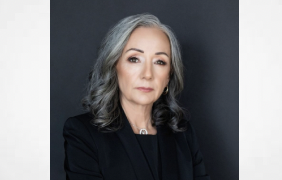Sechat digs into the details
In response to a case involving a discontinuation of treatment of a patient using cannabidiol, the Steering Committee of the Federal Senate sent to the Ministry of Health a requisition requesting clarifications on the suspension of cannabidiol Nabix®, acquired via judicial demand by the Unified Health System (SUS).
The case refers to a patient with Duchenne muscular dystrophy, a genetic disease that causes weakness and progressive muscle degeneration. The full amount of Nabix® for treatment was stopped, prompting the patient to appeal to the courts.
Em response at the request of the Senate, the Ministry of Health clarified that the supply of cannabidiol by SUS occurs exceptionally, being processed through court decisions and undergoing a tender that can take up to 120 days to complete.
The Ministry of Health pointed out that cannabidiol, including Nabix®, is not part of the National Essential Medicines List (RENAME), which means that it is not acquired centrally. This results in the absence of immediate stocks to meet legal demands, and the acquisition of the drug depends on specific procedures, such as bids and sanitary inspections.
Another factor contributing to the inappropriate delay is the need to import Nabix®, manufactured in the United States. Import is regulated by DRC no. 660/2022 of the National Health Surveillance Agency (ANVISA), which extends the deadline for the availability of the drug in Brazil.
Participating entities
The Advocacy-General of the Union (AGU) also took a position on the case, stating that in the judicial process no. 0002551-17.2021.4.03.6201, a judicial deposit of R$ 25.200,00 was made in August 2024, guaranteeing the treatment of the patient for six months. AGU explained that the Department of Demand Management in Health Judicialization (DJUD/SE/MS) is responsible for these demands, and that judicial deposits have been used as a solution to ensure the continuous supply of medicines.
The National Health Surveillance Agency (Anvisa) pointed out that although it regulates the import of cannabis products, the purchase and supply of these drugs is not within its competence. Anvisa explained that its competence is regular in cannabis products for medicinal purposes, which occurs through standards such as DRC 660 and DRC 327/2019.
The agency also recalled that cannabis-based products are subject to international control of controlled substances, obeying the guidelines of the SVS Ordinance no. 344/1998.
Case outcome
Currently, the judicial process is in the process of enforcing sentence. The judge upheld the decision that obliges the Union to ensure the adequate supply of the drug to the patient with Duchenne muscular dystrophy. The patient has already been authorized to withdraw the amounts deposited for the treatment and must be accountable for the use of the resources. In addition, a Small Value Request (RPV) was issued for the reimbursement of expenses.


















